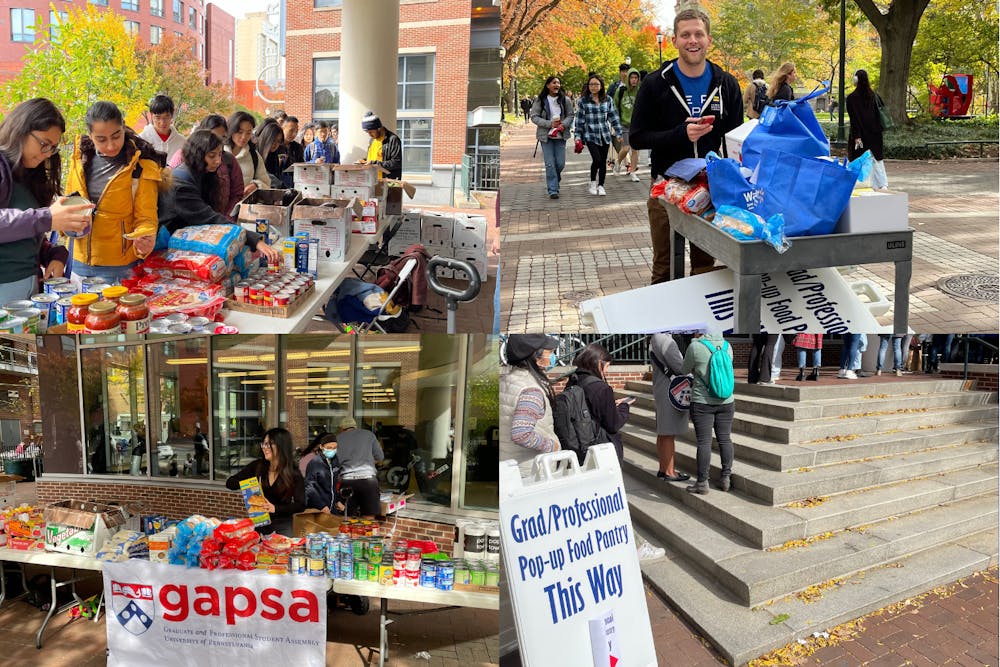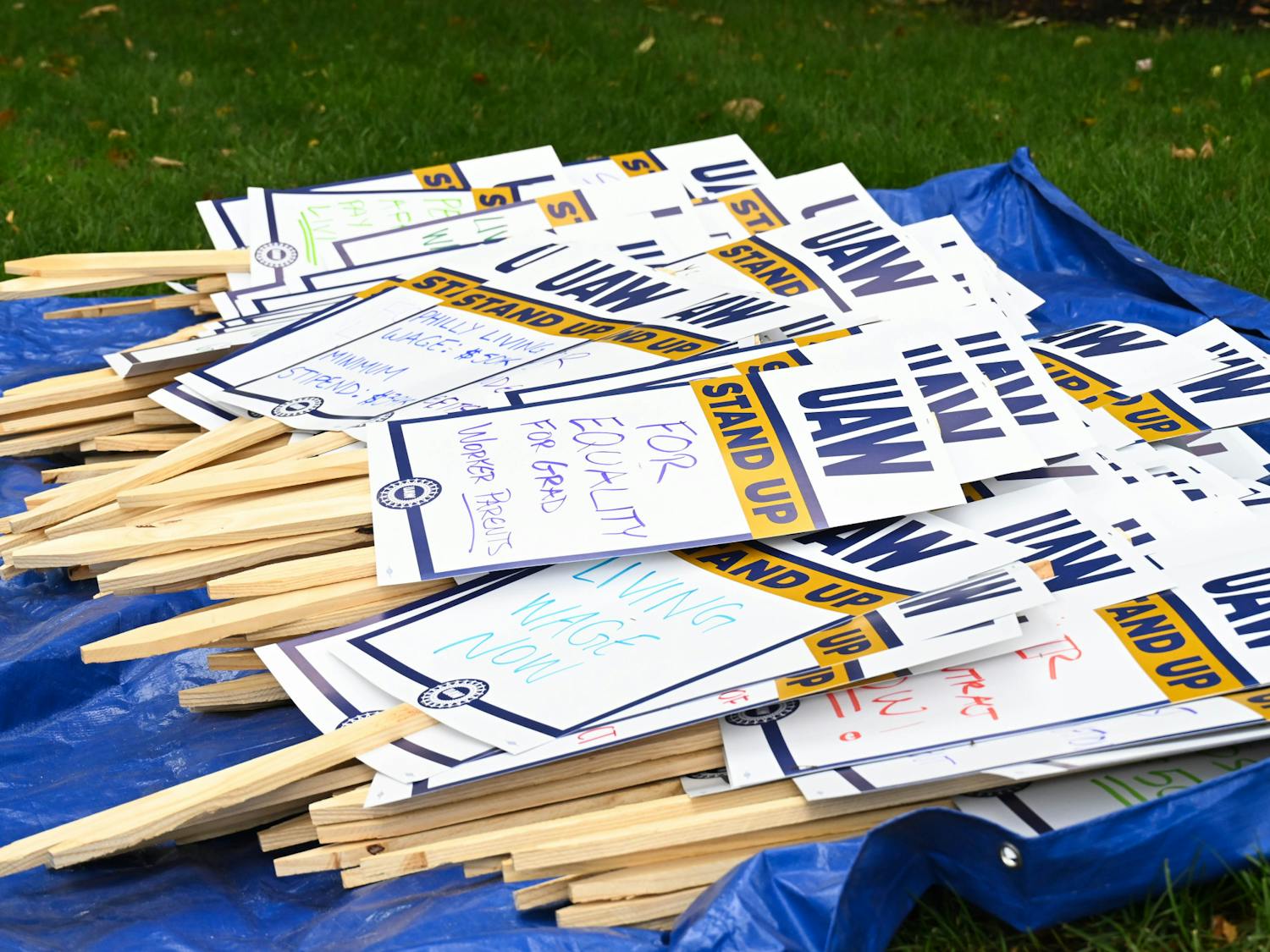Dozens of Penn graduate students filled bags with groceries and other necessities in a pop-up food drive that the Graduate and Professional Student Assembly held on Oct. 28.
The event took place outside in front of the Pottruck Health and Fitness Center, and much of the food was provided by Sharing Excess, a non-profit dedicated to eliminating food waste. Lines stretched around the center during the beginning of the event as volunteers handed out items.
Dian Febrianti, who is a Fulbright Foreign Language teaching assistant, said she was excited that fresh produce was offered, which she said made up an important part of her diet back home.
“It’s easier to find, you know, processed foods. But for fresh veggies, we kind of have to go to an Asian market or something else a bit farther away. And we don’t have a car,” she said.
The drive included other necessities beyond the produce and other food items.
Jason Werre, second-year law student and GAPSA’s director of student wellness, said that GAPSA aimed to respond to more than just food insecurity with the drive.
“Also just insecurity around basic essentials in general. We have floss and toothpaste and paper towels, other things that students need,” he said.
GAPSA has organized similar drives in the past, including one last November which had to close early due to unexpectedly high demand.
Food insecurity will be a major focus of GAPSA’s advocacy division this year, as Xinyi Wang, the director of external affairs at GAPSA in her third-year as a communications Ph.D. candidate, said. Part of fulfilling that mission will involve direct advocacy.
According to Werre, other resources exist for graduate students, but they can be limited in what they offer. The Greenfield Intercultural Center, for example, maintains a small food pantry for graduate students.
“It's kind of out of the way and it doesn't really have a lot of fresh produce and things that people cook with,” Werre said.
Through the Good Food Bag program, some first-generation and lower-income students are provided with five pounds of organic produce on a weekly basis. Recipients of this aid are nevertheless “limited in number” according to Xinyi.
The collaboration between GAPSA and Sharing Excess was the product of a chance encounter, according to Werre. The non-profit behind last month’s distribution of millions of avocados had set up a pop-up on Locust Walk when Werre passed by.
Sharing Excess has historically been focused on taking food destined for landfills from restaurants and retailers, and delivering those goods to hunger-alleviating organizations like food banks, according to Drexel MPH-MBA student Cara DePiano, who has worked for Sharing Excess for three years.
She told the DP that community outreach has become an increasingly important part of the organization's mission since the pandemic.
Weekly pop-up food drives in the local Clark Park and Malcom X Park have been popular, according to DePiano, while Alyssa Geniza, a community engagement coordinator for Sharing Excess, highlighted partnerships with local churches and supermarket chains.
Sharing Excess was originally founded by Drexel students trying to make use of leftover meal swipes, and has a presence on numerous college campuses across the state.
A Sharing Excess chapter exists at Penn, according to the Penn Clubs website, as well as the Sharing Excess website.









